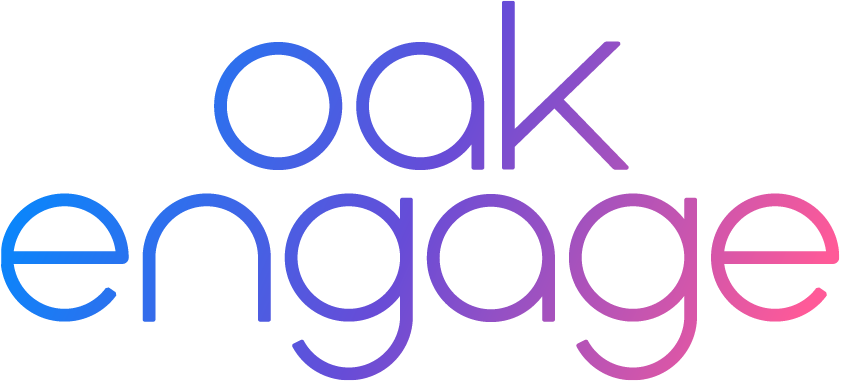Toxic work environments exposed: 75% of UK employees admit they have experienced a toxic workplace culture
- Survey reveals 87% of employees agree that a toxic workplace culture has had a negative impact on their mental health
- 73% of employees agree that a toxic workplace has contributed to burnout
- 71% of employees admitted they are likely to work from home in order to avoid toxic office cultures
- 61% of employees have even resigned from a job due to workplace culture issues
A survey of more than 2,000 employees by employee engagement and intranet experts, Oak Engage has revealed that three quarters (75%) of employees say they have experienced a toxic workplace culture, with women and people working in Healthcare most likely to be affected.
The survey revealed that middle managers (33%), other employees (28%) and leadership (28%) were most responsible for toxic workplace cultures.
The survey also uncovered various toxic behaviours experienced by employees, including feeling belittled in front of other employees (56%), bullying (42%), forced to work long hours (32%) and harassment (26%).
Recognising the urgent need for healthier work environments, Oak Engage has partnered with Wysa, a global leader in AI-driven mental health support, to provide practical recommendations for organisations to foster positive cultures.
Clear communication with your people
Employers need to communicate consistently and openly with their people. It starts from the top and communicators can advise leaders on encouraging a healthy culture at work.
Smriti Joshi, Lead Psychologist at Wysa said: “Fostering a healthy culture at work allows for vulnerability and creating a safe space for employees. When leadership models authenticity by sharing both their productive strengths, as well as their emotional challenges and imperfections, it paves the way for normalising conversations around mental health concerns. This will reduce the stigma for employees and allow them to feel heard by other employees and managers.”
“Transparency in conversations will reduce scope for misunderstandings and mistrust around work, the workspace and leadership intentions. This level of openness cultivates a sense of safety within the workplace, thereby enhancing employee presence and productivity.”
Promote equality and diversity
Alarmingly, discrimination is prevalent in the workplace, with employees reporting incidents based on age (24%), gender (21%), race (including colour, nationality, ethnicity or national origin) (14%), pregnancy or maternity leave (11%), disability (10%), sexuality (9%), religion or beliefs (8%), being married or in a civil partnership (5%), and gender reassignment (5%).
Smriti comments: “Diversity and inclusion can bring in far more benefits for an organisation than one can imagine. Embracing inclusivity helps create a safe space for employees and brings in talent from diverse backgrounds with different perspectives, experiences and skills. This culture of diversity and inclusion can lead to enhanced creativity, innovation, and problem-solving within the organisation.”
Flexible working hours
According to the survey, a negative workplace culture hinders employee retention (67%), overall happiness of employees (63%), productivity (54%), employee attendance (43%) and collaboration (39%).
Smriti adds: “When people are struggling, languishing or experiencing mental health concerns, mental health professionals recommend they slow down and pace their day based on their energy levels and needs and only prioritise what is necessary. Not being able to "own" their schedules or not having the provision of flexible schedules from their workplace can add to more stress and exacerbate their challenges."
"This can result in increased absenteeism, or even worse, presenteeism, where employees are physically present but mentally disengaged. In this scenario employees can feel "forced" to come into work even when they are already struggling, leading to poor focus, low productivity and impacting their self confidence. This presents a high risk of their mental wellbeing worsening or even reaching a point of crisis.”
Safe channels for reporting and regular feedback
Employees need to feel safe to report any issues related to toxic workplace behaviours.
Will Murray, CEO at Oak Engage said: “It’s so important for employees to have their say, provide feedback and raise any issues they may have. This gives a sense of belonging and increases employee engagement with two-way communication, fostering an inclusive work environment and makes your people feel valued, appreciated and heard. Oak allows you to conduct regular surveys and polls which enables you to capture real-time feedback from employees.”
Smriti adds: “Organisations can also help their employees by giving them access to mental health tools that offer a safe outlet to voice their concerns and teach effective coping mechanisms. Utilising analytics to gauge the emotional wellbeing of employees can also inform policy decisions.”
Employee training
The survey revealed that 81% of employees agreed that businesses with toxic workplace cultures have leaders or managers who lack empathy.
Smriti highlights: “Not everyone has people management experience or skills and sometimes even the kindest people may not be able to express empathy while communicating, especially during a conflicting situation at work. By providing regular training focused on understanding and empathy can be transformative. Tailoring this training to meet the specific needs and challenges of your organisation, while keeping diversity in your organisational workforce, can help create a more compassionate, respectful, and inclusive workplace where employees feel valued and supported.”
Supportive leadership
Leadership plays a crucial role in setting the tone of the workplace. Communicators should encourage leaders to lead with empathy and show a genuine interest in the wellbeing of their employees.
Smriti adds: “The commitment of senior leaders in any organisation is crucial for the success of any mental wellbeing initiatives and training programs. When leaders champion the cause, actively participate and openly discuss their own mental health experiences and challenges they faced during their journey, it resonates with employees. Such leadership encourages active participation and uptake of these initiatives and training sessions. It helps employees feel motivated to engage and contribute, maintaining a safe, cohesive, inclusive and empathetic culture at work.”
Invest in technology
The survey shows 69% of employees agree that the communication channels and technology they use in their organisation contributes to a positive culture.
Will Murray, CEO at Oak Engage adds: “Our research aims to shine a light on the detrimental impact of toxic workplace culture on the mental and physical wellbeing of employees. The statistics are alarming, highlighting the clear need for businesses to create healthier working environments for their people.”
“With 69% of employees affirming that their organisation’s communication channels and technology contribute positively to their work culture, it’s critical that these resources are utilised more effectively. Products like Oak Engage’s intranet can promote open dialogue, celebrate achievements and encourage a sense of belonging amongst employees.”
“But we need to remember that technology alone isn’t the solution. It needs to be backed by strong, empathetic leadership and a genuine commitment to prioritising employee wellbeing.”
For more key insight from the survey and detailed recommendations from industry experts, download Oak Engage’s new culture report from their website.
ENDS
Note to Editors
Methodologies
The research was conducted by Censuswide on behalf of Oak Engage, with 2,022 employed respondents from a nationally representative sample of UK adults aged 16+ across the UK between 24/05/2023 - 26/05/2023.
For more information contact:
Emma Williamson | PR Manager | 07548831780
About Oak Engage
A better way to mobilise, motivate and engage your people. Oak Engage is an award-winning employee engagement and intranet solution. Oak Engage delivers next generation curated content across a modern intranet and employee engagement app. We empower HR and internal comms teams to surface relevant content, to the right people, at the right time.
Oak Engage is here to make communication simple. Oak believes there is a better way to use technology to engage employees, cut through the noise, and inspire action that puts people at the heart of organisations.
Oak Engage's key achievements to date:
- Award-winning: The Nation’s Best Intranet with NatWest Group at the IoIC Awards
- Goes above and beyond for their people with 4.9/5 rating on Glassdoor
- High Performer on G2
- Goes above and beyond for their customers with a 9.4 Quality of Support score on G2 (Industry average: 8.6)
- Trusted by the world’s biggest brands including Aldi, Five Guys, ITV and NatWest Group
- Sends millions of personalised messages to employees everyday
About Wysa
Wysa provides anonymous mental health support on-demand. We believe access to support should be available whenever people need it. Stigma prevails, so we take away the need for people to ask for help and eliminate the need for people to make a judgement call on when they should seek professional support. Wysa’s clinically proven AI-first approach enables employees to improve their mental health before symptoms become severe, and encourages them to take additional support when it’s needed by guiding them towards Wysa’s human coaching, your EAP or national crisis lines. Wysa has helped over 5 million people through 550 million AI conversations across 90 countries.




